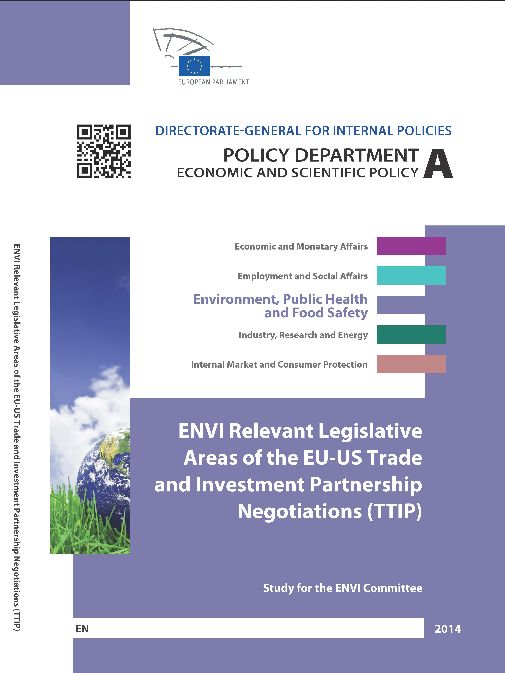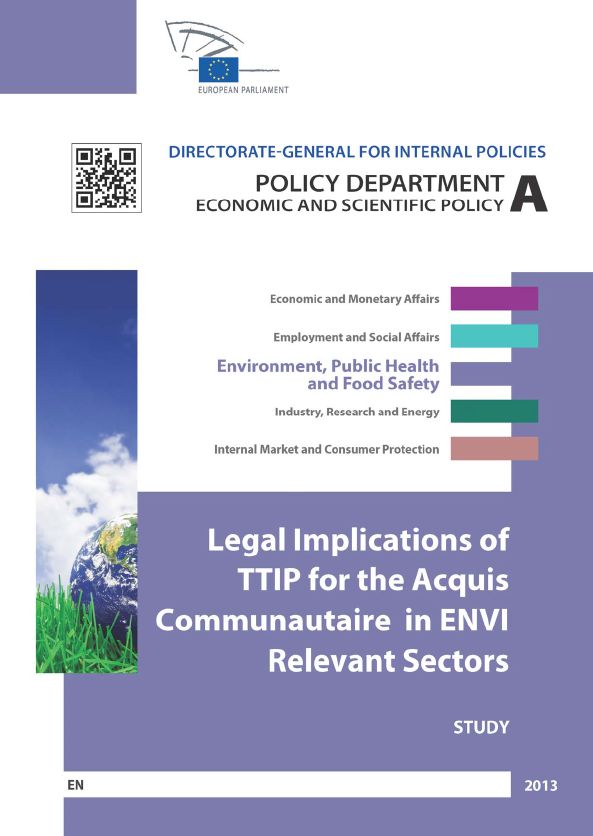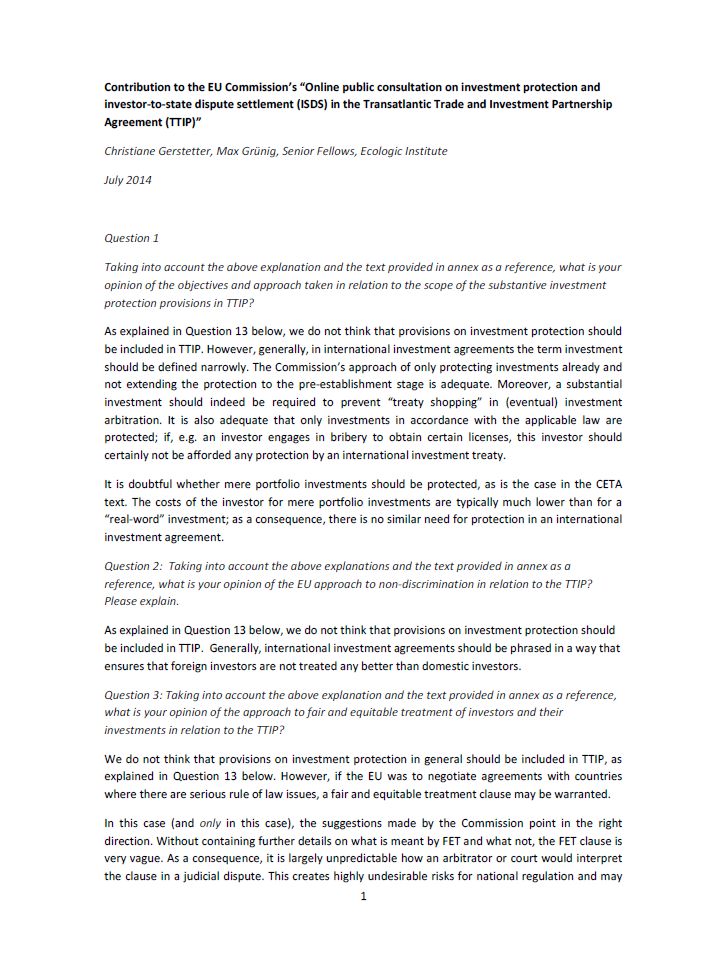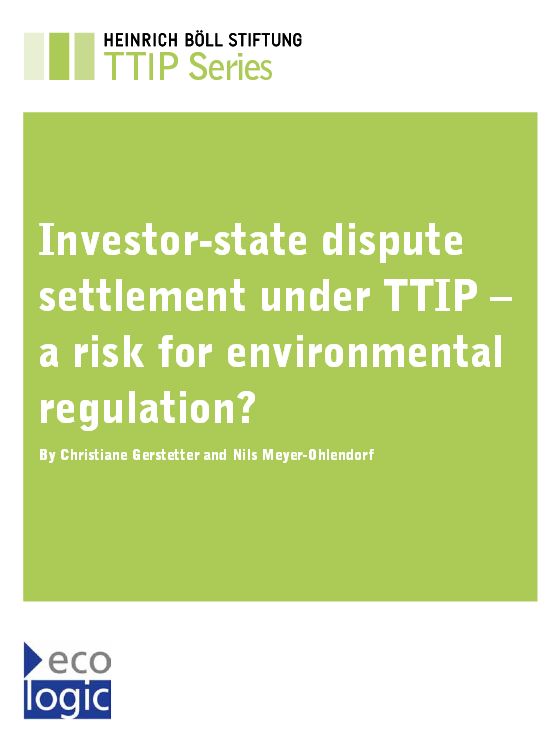TTIP: Impacts on Agriculture and Food in the US, the EU and Beyond
- Event
- Date
-
- Location
- Washington DC, United States
Ecologic Institute, US (EIUS) co-hosted a workshop with the International Food Policy Research Institute (IFPRI) on 9 January 2015 titled "TTIP: Impacts on Agriculture and Food in the US, the EU and Beyond". The workshop aimed at discussing the Transatlantic Trade and Investment Partnership (TTIP) proposed trade agreement under negotiation between the European Union and the United States of America with regards to the food and agricultural provisions which would be included in the agreement. Issues with regulatory cooperation between the two systems as well as eliminating trade barriers to facilitate the flow of goods across the Atlantic were discussed amongst the participants and presenters, which included academics, policy researchers, government officials, NGO representatives, and members of the press.
Max Grünig, Executive Vice President of EIUS, opened the morning research session with a welcome address and introduced Dr. David Laborde Debucquet, Senior Research Fellow at IFPRI, as co-host of the workshop. Mr. Laborde Debucquet gave the first presentation about the "Economic impacts of TTIP in the field of agriculture". He pointed to the varying findings of economic costs and benefits for each party depending on the different models, assumptions, methodologies and base values which have been used.
Elizabeth Dooley, Researcher at Ecologic Institute, presented next regarding "Food, Nutrition, and Sanitary and Phytosanitary (SPS) regulation under TTIP". Her presentation was based on a section of the publication completed for the European Parliament Committee on Environment, Public Health and Food Safety titled ENVI Relevant Legislative Areas of the EU-US Trade and Investment Partnership Negotiations (TTIP). Elizabeth Dooley discussed the two systems for food and agriculture regulation regarding product traceability, labeling, marketing authorization, and risk mitigation measures and the differences which could present issues in the negotiations for regulatory cooperation.
The afternoon policy session began with a talk presented by Sharon Bomer Lauritsen, Assistant U.S. Trade Representative for Agricultural Affairs and Commodity Policy, highlighting an American perspective on food and agriculture under the TTIP. Subsequently, Damien Levie, Head of the Trade and Agriculture Section of the European Union Delegation in Washington, DC, presented a European perspective on food and agricultural issues under the TTIP. A roundtable discussion highlighted many of the key issues under debate during the current TTIP negotiations, such as geographical indications, genetically modified organisms, pesticides, etc.






